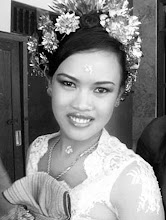Ended the prehistoric time, Bali already directioned to carry out the search and the trip by the spiritual devotees. Rsi Markandeya was recorded as the spiritual leading figure from Java that was first stepped on the trip in Bali. The trip carried out the search for the holiness of the heart and the balance of previous nature placed the pillar of the Hindu religious order in the south Mount Agung slope that currently is known as the Agung Besakih Temple. The Basukian temple was believed as the first Rsi Markandeya pillar together his follower ascertained Bali as the constructive aim land the spiritual value.
As if being continuous, the spiritual living order simultaneously was consecutive with the government's order in Bali. The government of the Warmadewa Dynasty was named in various old texts very supportive continuation of religious life with the culture and the local tradition so as to invite the arrival of spiritual leading figures and the Javanese land.
The Empu Kuturan arrival in aroun the age 11 could definitely glue the living order of the local community with the Hindu religious order that was carried from Java. The order of the traditional village with the concept parhyangan as personification of the Lord in the function of Tri Murti was efforts to accommodate the unification of the local concept with the Hindu concept.
The spiritual trip continued was carried out by the Hindu religious figure from the Javanese land. The Indonesian Archipelago unification by Majapahit was the peak of the trip and the transformation of the religion and the local culture with the Hindu culture.
In the time trip, Bali and his community afterwards underwent daily they with the life order, the religion, art, and the unique culture. This uniqueness afterwards, in around 1579, became attention of a Dutchman named Cornelis de Houtman that carried out the trip to Indonesia to look for spices. The fertile land, the agricultural activity and the uniqueness of his inhabitants's culture in underwent daily really became big attention for the expedition de Houtman.
The coincide with Indonesia that was known as the producer of spices, Bali began to be known the world from the side of the culture. The Dutch command against Indonesia then in around the age 17 and 18 did not often give the influence in the life of the religion and the culture in Bali. Hindu in Bali in the periods in fact entered the glory period when the kingdom in Bali concentrated in Gelgel and afterwards was moved to Semarapura (Klungkung). Early of the age 20, just Bali was controlled by the Netherlands was marked by the fall of the Klungkung Kingdom through the Puputan Klungkung War in 1908.
As if being continuous, the spiritual living order simultaneously was consecutive with the government's order in Bali. The government of the Warmadewa Dynasty was named in various old texts very supportive continuation of religious life with the culture and the local tradition so as to invite the arrival of spiritual leading figures and the Javanese land.
The Empu Kuturan arrival in aroun the age 11 could definitely glue the living order of the local community with the Hindu religious order that was carried from Java. The order of the traditional village with the concept parhyangan as personification of the Lord in the function of Tri Murti was efforts to accommodate the unification of the local concept with the Hindu concept.
The spiritual trip continued was carried out by the Hindu religious figure from the Javanese land. The Indonesian Archipelago unification by Majapahit was the peak of the trip and the transformation of the religion and the local culture with the Hindu culture.
In the time trip, Bali and his community afterwards underwent daily they with the life order, the religion, art, and the unique culture. This uniqueness afterwards, in around 1579, became attention of a Dutchman named Cornelis de Houtman that carried out the trip to Indonesia to look for spices. The fertile land, the agricultural activity and the uniqueness of his inhabitants's culture in underwent daily really became big attention for the expedition de Houtman.
The coincide with Indonesia that was known as the producer of spices, Bali began to be known the world from the side of the culture. The Dutch command against Indonesia then in around the age 17 and 18 did not often give the influence in the life of the religion and the culture in Bali. Hindu in Bali in the periods in fact entered the glory period when the kingdom in Bali concentrated in Gelgel and afterwards was moved to Semarapura (Klungkung). Early of the age 20, just Bali was controlled by the Netherlands was marked by the fall of the Klungkung Kingdom through the Puputan Klungkung War in 1908.


No comments:
Post a Comment